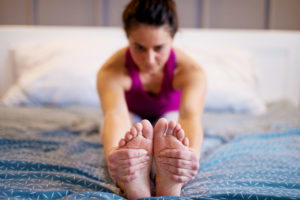
Precisely how sedentary are we?
You may think you live a safe and healthy life – you look twice before crossing the street, eat the right foods, and carve half an hour every evening for a few burpees. But you might be surprised to learn that we all engage in one particularly dangerous activity daily: sitting.
We spend a lot of time sitting without knowing it. If you start tracking how much time you spend sitting, you will quickly realize that you spend most of you waking hours seated. Why are we sitting so much? Is it because we have to?
We sit at church, work, school, traveling and while we socialize. Our ideal job is one that allows us to sit in a nice office.
Due to the advances in technology we have more white-collar jobs. With the rise of the white-collar jobs, TV, gaming, and social media more and more people are spending most of their time on their butt staring at a screen. Our time off is spent binge watching our favorite show and minding other people’s business on social media.
Because we are so glued to the screen, we can run our lives from our phone using all the available apps that were created to make our lives easier. We have an app for everything from eating to driving. With the touch of a few key strokes breakfast, lunch and dinner can be delivered to our front door.
Even our groceries can be delivered to us . Therefore it’s unnecessary to browse the isles of the grocery store.We spend a significant amount of time on our feet when we grocery shop but with grocery delivery services there is no longer a need to go the grocery store .
Who doesn’t look forward to just doing and thinking about nothing. After a long day at work and commuting we cannot wait to get home to chillax on the couch and watch TV. If we repeat this routine 5 out of the 7 days in a week then we have become accustomed to a lifestyle that will lead us on the path of health-related issues caused by inactivity.
While at first, this may not seem like such a bad thing, sitting for extended periods of time can pose some serious health problems. Some are equivalent to smoking

What are the dangers of sitting?
Throughout the years, studies have established a strong link between prolonged sitting and health issues like hypertension, diabetes, cancer, and anxiety, as well as early death. .
For one, those who sit down for extended periods of time every day tend to have less active lifestyles. Research has also shown that people who sit down for long periods of time are at an elevated risk of developing high blood pressure and its complication such as heart disease, stroke and kidney failure
When you’re sitting for long periods of time, your muscles burn less fat, and the blood flow becomes more sluggish; this makes it easier for fat deposits to clog the arteries and the heart.
Additionally, prolonged sitting has been linked to an over productive pancreas, the organ that produces insulin – a hormone implicated in diabetes. When you’re idle and sitting, your muscles aren’t as sensitive to the insulin as the active muscles are, which may lead to your pancreas producing more and more, thus increasing your risk of diabetes.
Chronic sitters tend to suffer from muscle degeneration in the abs (when you stand or move around, it is your abdominal muscles that make sure you stand upright), tight hips and limp glutes, as well as poor circulation in the legs. And let’s not forget the constant ache in the neck and the back, which could be traced back to sitting. The aches and pains that you get from sitting for prolonged periods of time squashes the soft discs between the vertebrae of the spine which makes your back more inflexible and could lead to disk damage.
Another problem that can develop is Deep Vein Thrombosis. Deep Vein Thrombosis occurs when blood clot form in the veins of your leg due to sluggish blood flow. While not inherently lethal, DVT can travel to the lungs and turn into a real emergency. Known as Pulmonary Emboli. As if that weren’t scary enough for you, while many who suffer from DVT will feel swelling and pain in the legs, it’s entirely possible to not show any symptoms whatsoever.
Another risk of sitting for too long is a heightened risk of cancer, studies show that the longer someone sits, the higher their chance of developing endometrial, colon, or lung cancer.
Lastly, sitting takes away your energy. Have ever noticed that the more you sit there more tired you become? While sitting can temporarily relieve a achy foot it won’t give you energy.
What about exercise?

Many think that although they sit for many hours a day, their daily exercise routine counteracts the risks it brings; this, however, is untrue. While there are plenty health benefits of exercise, sitting for extended periods of time can counteract much of the health benefits exercise brings.
The troublesome news is that similarly to smoking, the detrimental effects of sitting cannot be neutralized with exercise. A recent review of 43 studies found that people with a sedentary lifestyle had a 20-30% higher risk of developing different forms of cancer, regardless of whether – and how much – they exercised.
This could be due to the fact that your body consumes energy in vastly different ways when you’re sitting and standing. It is commonly thought that excessive sitting slows down your metabolism. If you’re parked behind a desk for the better part of the day, chances are you’re only burning up to 300 calories a day, compared to a coffee shop barista, who’s on their can burn up to 1,300 calories throughout their shift!
Will All the Chronic Sitters Please Stand Up
For most of us, especially those with an office job, the sedentary lifestyle is non-negotiable. The good news is that you can still prevent many of the health issues associated with prolonged sitting. All you have to do is carve some time for physical activity throughout the day, ideally by reducing your sitting time.
What you can do to build more activity into your day:
• Stand on the train or the bus, or walk or cycle instead of going by car
• Forget the lift: take the stairs and walk up the escalators
• Consider a standing desk
• Walk around the office during your coffee or tea break
• Get off the bus one or two stops earlier and walk home the rest of the way
